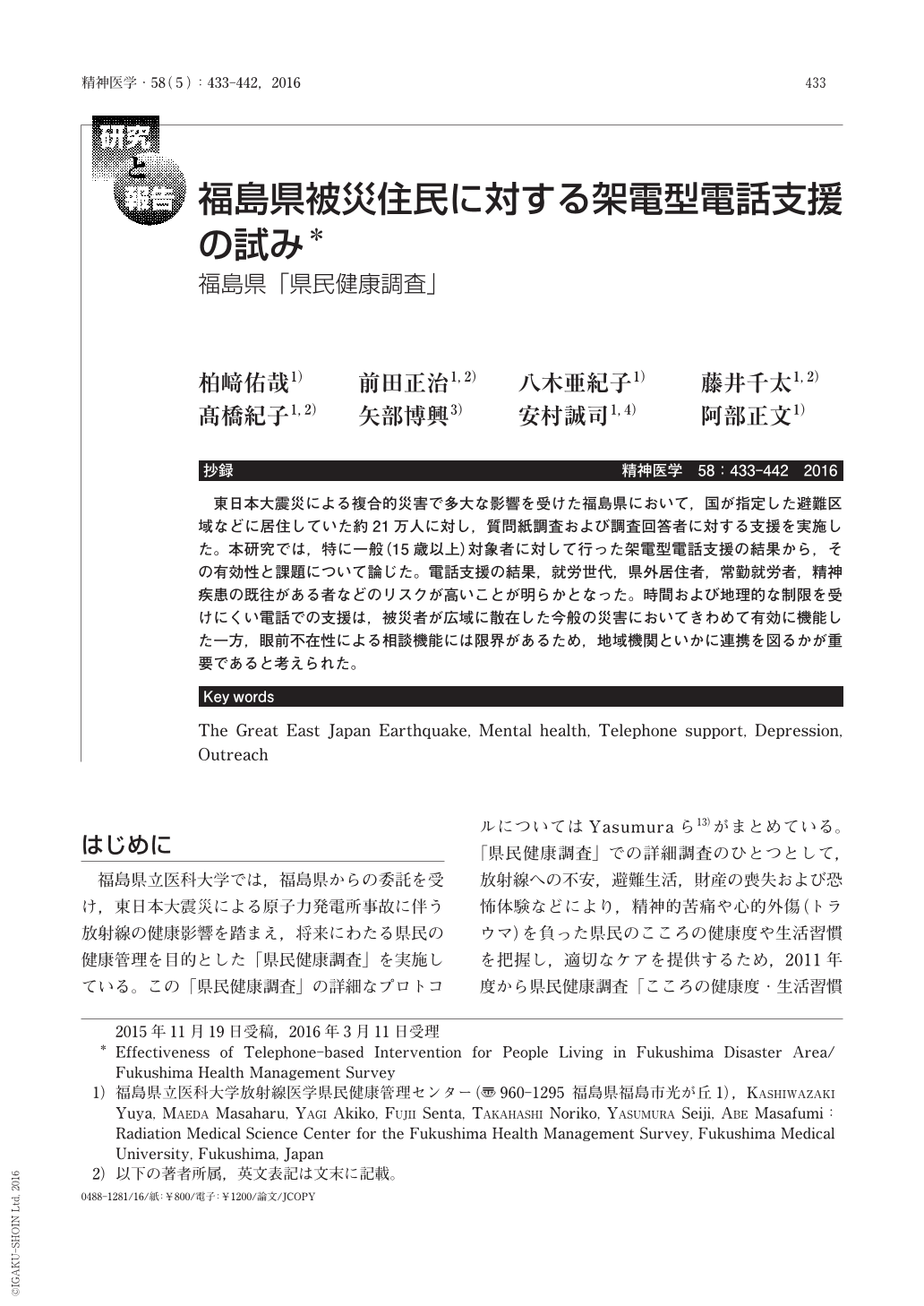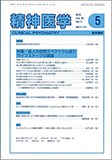Japanese
English
- 有料閲覧
- Abstract 文献概要
- 1ページ目 Look Inside
- 参考文献 Reference
- サイト内被引用 Cited by
抄録
東日本大震災による複合的災害で多大な影響を受けた福島県において,国が指定した避難区域などに居住していた約21万人に対し,質問紙調査および調査回答者に対する支援を実施した。本研究では,特に一般(15歳以上)対象者に対して行った架電型電話支援の結果から,その有効性と課題について論じた。電話支援の結果,就労世代,県外居住者,常勤就労者,精神疾患の既往がある者などのリスクが高いことが明らかとなった。時間および地理的な制限を受けにくい電話での支援は,被災者が広域に散在した今般の災害においてきわめて有効に機能した一方,眼前不在性による相談機能には限界があるため,地域機関といかに連携を図るかが重要であると考えられた。
Fukushima prefecture was terribly affected by 2011 Great East Japan Earthquake with tsunami, as well as the resulting series of nuclear accidents that occurred at Fukushima Daiichi Nuclear Power Plant. We conducted a mental health and lifestyle survey for of approximately 210,000 residents who had once lived in the evacuation zone which specified by the government. Subsequent intervention was performed via telephone for those participants at risk for psychological distress, in accordance with the result of the survey. In this study, we used empirical evidence to demonstrate the effectiveness of the intervention with respect to ages 15 and older, focusing on the telephone-based intervention service. The results of our intervention service suggested that the people of working age, those living outside of Fukushima prefecture, those with full-time employment, and those with a history of psychiatric illness had some risk of developing mental health or physical health issues. It is conceivable that our intervention service for the evacuees broadly living in or outside of Fukushima provides a convenient and advantageous method of outreach. This telephone-based intervention service, however, has an apparent limitation not providing direct intervention for the evacuees. Therefore, the efficient cooperation with other medical and welfare facilities is needed in order to achieve a successful level of support for them.

Copyright © 2016, Igaku-Shoin Ltd. All rights reserved.


